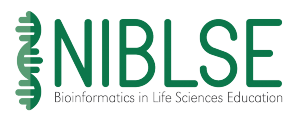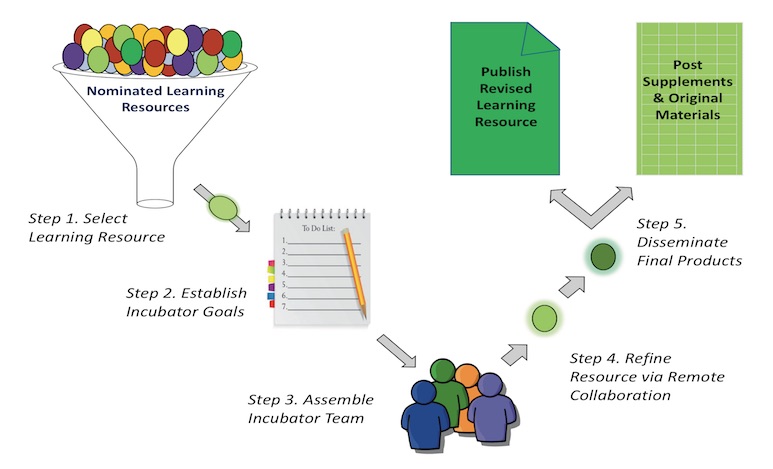How to Submit a Learning Resource NIBLSE Learning Resource Collection More Information about Incubators
The NIBLSE and QUBES Projects are collaborating on a new strategy for making bioinformatics learning resources more accessible to undergraduate educators. Learning Resource Incubators assemble a small group of faculty for a defined period (typically six weeks) to improve and support the use of existing bioinformatics lessons. The post-Incubator products are more complete, better documented, and include supplementary materials to make it easier for non-specialists to adopt and adapt them for use in their own classrooms.
See the June 2020 Biochemistry and Molecular Biology Education publication to learn more about how Incubators work and their success in refining and supporting the incorporation of bioinformatics resources into life science classrooms.
The Learning Resource Incubator model has addressed several persistent challenges to the integration of bioinformatics across the biology curriculum including:
- Increasing the pool of high quality bioinformatics lessons by providing a mechanism for producing publishable products.
- Making the resources more accessible to a non-specialist teaching audience by providing more complete documentation of the bioinformatics learning outcomes and including background for both faculty and students.
- Supporting the customization of lessons for diverse teaching settings and audiences by promoting the use of Open Education Resources (OER) publishing practices.
Incubator Partners
The NIBLSE community is coordinating an effort to collect, customize, and disseminate high quality bioinformatics learning resources.
NIBLSE has worked with the Quantitative Undergraduate Biology Education & Synthesis Project (QUBES) to establish learning resource “incubators” that nurture the development and dissemination of promising lesson materials.
NIBLSE members worked with the CourseSource Project to articulate a Learning Framework for Bioinformatics that describes the learning goals and objectives relevant to undergraduate biological sciences majors.


